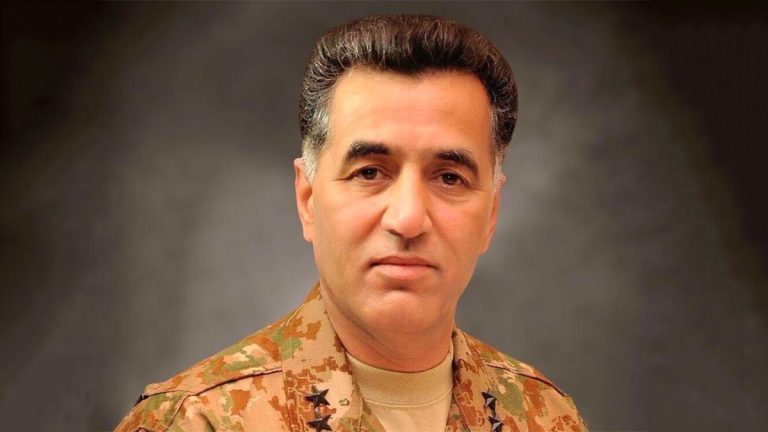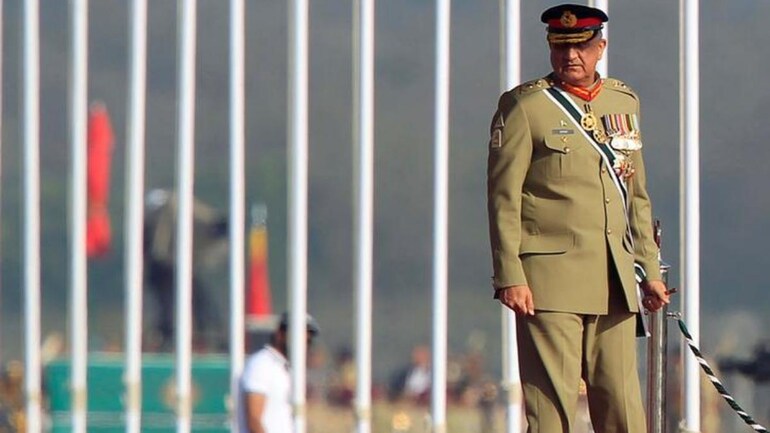The normal practice is that the name of the Commander of Armed Services (COAS) who is supposed to step in the shoes of the outgoing COAS is announced by Pakistan government in good advance. This has been the practice followed in Pakistan ever since the creation of the State of Pakistan for the Muslims of India in 1947.
Gen Qamar Bajwa the in service COAS of Pakistan will hang his boots on 29 November after completing the term of his extended services. Only a few days are left for the event and still the Prime Minister’s office is grappling with the issue of a replacement.
Pakistan constitution entitles the Prime Minister to take a decision about who among the three senior-most three star Generals is chosen to be the next army chief.
The difficulties for Prime Minister Shahbaz Sharif are more than one, complicated as well as sequential. He enjoys access to power through a controversial no-confidence vote in the Pakistani General Assembly in which members continued to change floors till the last moment creating a confusing and dubious situation for the treasury as well as the opposition benches. Shahbaz Sharif was the chief minister of Punjab province where ML(N) was in majority. He did not come through general election and that is his weakness.
The ousted prime minister Imran Khan did not accept his defeat. He alleged that the entire non-confidence process was irregular and illegal, and an illegitimate government was put in place. He regrouped his supporters in hundreds of thousands, brought out protest rallies, hurled allegations on the ruling group, charged them with horrendous corruption and mismanagement and laid stress on holding general elections without delay.
Perhaps Shabaz Sharif government would not be deterred by these gimmicks of the former prime minister, but two things seriously crippled his initiative of naming the next COAS in proper time. The first was that Imran Khan accused the US of interfering with the internal matters of Pakistan and subscribing to his ouster covertly. The second was charging the top military generals of unimaginable corruption and loot of public exchequer.
Pakistanis are already nursing anger and hatred for the US and the army both. It is a different thing that under the steel arm of dictators, the masses of people never mustered courage to raise their voice against either of the two. But Imran Khan’s bold and scathing criticism of both had an immense impact on the general public. The numbers that followed Maulana Fazlur Rahman in rallies against the government of Imran Khan paled into insignificance in comparison to the numbers that swelled the ranks of Imran’s followers.
The ruling party could not ignore the new development in which its credibility and acceptance by the people was on the downward graph. This entire scenario has been weighing heavy with the Prime Minister.
To make things worse for the government, the rumours have been making the rounds that there are differences among the senior officers of the Pakistan Army which became deeper and more irritating when Imran Khan as Prime Minister was unwilling to endorse the recommendation of the COAS (Gen Bajwa) to change the DG of ISI. The acting DG Lt. Gen Faiz Hameed, known to be close to Imran Khan, was to be replaced with Lt Gen Nadeem Anjum. The tussle between the PM and the COAS continued for many weeks and finally the PM had to give in. Lt Gen Faiz Hameed was sent to Karachi as Corps Commander. But he activated his sympathisers in both higher and lower ranks, and posed a challenge to Gen Bajwa. Imran Khan drew his strength from the pro-Faiz Hamid group. The fear is that Lt Gen Faiz Hamid may adopt very hostile attitude if he was nominated as the next COAS to replace Gen Bajwa could lead to a mutiny by the army. The weakling Prime Minister is unable to overcome the dilemma.

An open split in the army will damage its profile as a dedicated and duty-bound army of a country with a nuclear bomb. The lofty claim of Pakistan that it is the only Islamic country with a nuclear bomb will crumble down and the prestige which Pakistan has been enjoying among some of its allies like Turkey, Malaysia and the US will disappear.
In the meanwhile General Bajwa has started his farewell rounds beginning with Sialkot army headquarter. This stands in contrast to yet another rumour that he is eyeing for the position of the President of Pakistan. Confirmation of this rumour has not come from any quarter but it is presumed that making him the President of Pakistan could be a safety measure against the dissident sections in the army tuning down their hostility to Nawaz Sharif government.
Hindsight shows that the Pak Army has been all powerful in Pakistan ever since the state came into existence in 1947. “The power of the Army chief flows not from the canon of any statute book but from the cannons of steel and fire; this power is historical and not constitutional. Still, it is a real hard power,” wrote a columnist of the Economic Times of 18 November.
The powerful Army, which has ruled the country for more than half of its 75-plus years of existence, has hitherto wielded considerable power in matters of security and foreign policy.
Since its founding in 1947, Pakistan saw seven prime ministers in quick succession in the decade. General Ayub Khan grabbed power in 1958. He “ruled with an iron fist until becoming unpopular and was forced to resign in 1969.” But he handed over power to another military man, General Yahya Khan, who ruled till 1971 and was kicked out when Pakistan was dismantled in the war of 1971. Two more military dictators followed General Yahya, namely Gen Zia (1977 – 1988) and Gen Musharraf (1991 – 2008). Both left bitter memories of internal discord. Army ruled for about one-half of the history of Pakistan directly and the other half indirectly of by proxy. None of the 19 prime ministers completed their allotted five years constitutional term. Another 11 prime ministers were appointed for a short term to oversee the elections or as a stop-gap arrangement. General Bajwa worked with 4 prime ministers and two of them, Mian Nawaz Sharif and Imran Khan, were removed prematurely.

